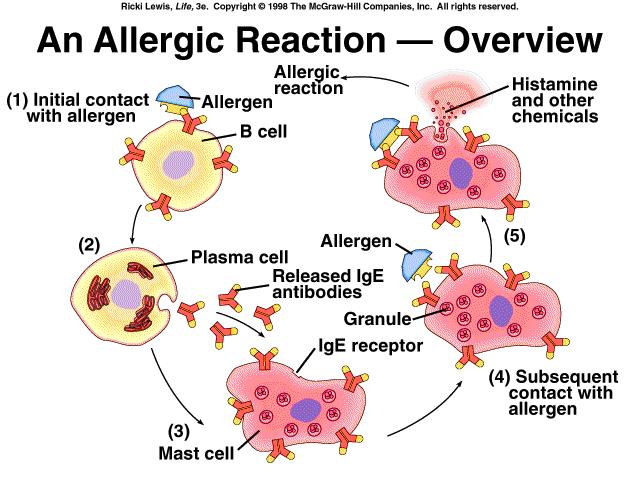
Middle-class children are twice as likely to have peanut allergy as those from poorer families, a study has found.
Researchers believe GPs may see more children with allergies from better-off families, although poorer children may be protected in some way from developing them.
Some experts also think that an excessively clean lifestyle linked to rising levels of affluence is driving the rise in allergies and asthma because it fails to wake up the immune system.
Health hazard: Around 25,000 people in England have an allergy to peanuts – and the figure is rising
Previous generations were exposed to more dirt and bugs which helped their immune systems develop resistance.
In the past 20 years the number of British children with peanut allergy is believed to have doubled, but the latest study by Scottish and Dutch researchers gives the most accurate estimates yet.
It shows that around 25,000 people in England are affected, with males aged up to 20 most at risk.
Peanut allergy commonly causes breathing problems, but occasionally results in fatal anaphylactic shock.
Researchers at Edinburgh and Maastricht universities studied records from more than 400 GP practices in England between 2001 and 2005 to determine the number of patients with an allergy diagnosis.
Health snack: but some children can have severe reactions if they are allergic to peanuts (File photo)
The rate per 1,000 patients was 0.70 in the most affluent group, compared with 0.36 in the poorest, says a report in the Journal of Allergy and Clinical Immunology. Dr Colin Simpson, co-author of the Department of Health-funded study, said children from more affluent families were most likely to be taken to the doctor for symptoms.
‘but these figures show they have a true allergy, these are not “worried well” children,’ he said.
‘It could be that children from less well-off families may actually be less likely to have peanut allergy.’
Until recently parents were told to avoid exposing their children to peanuts until they were three to reduce allergy, but this official advice – which has been withdrawn – was blamed by some experts for the rise of ‘nut hysteria’.
Indeed, some doctors believe exposure to peanuts early in life could save children from developing an allergy by priming their immune system.
Lynne Regent, chief executive of the Anaphylaxis Campaign, the national charity that supports those with severe allergies, said: ‘In our experience, people from affluent backgrounds are most likely to go to their GP with an allergy problem.
‘if this is so, it’s vital that crucial messages reach a much wider audience. Peanut allergy can be life-threatening, but it can be well managed so long as people affected are properly diagnosed and given instruction in how to avoid foods that will harm them.’